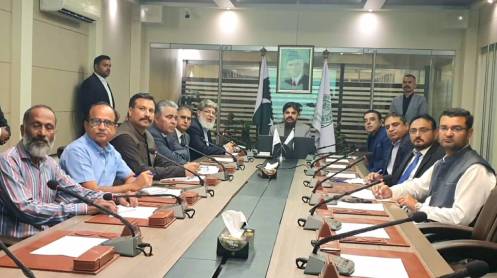Newly appointed Sindh Energy Minister, Syed Nasir Hussain Shah, has said the execution of the ongoing solar power projects will be expedited for fully tapping the clean energy potential of Sindh to fulfil the election campaign promise of PPP Chairman Bilawal Bhutto Zardari to provide 300 units of free electricity to underprivileged consumers.
Shah stated this while chairing an introductory meeting with the officials of the Sindh government’s Energy Department after he assumed charge of his ministerial position a day after he took the oath of the office of provincial minister.
The new Sindh Energy Minister asked the officials of his department to take care of quality standards and merit while executing the development projects.
The Energy Minister was briefed that a total of 15.3 million tonnes of coal was being extracted annually from Block One and Block Two of Thar coal. The Thar coal is being consumed to produce 3,300 Megawatts of electricity for the national grid to save the precious foreign exchange otherwise spent on imported fuels for the energy sector. A 105 kilometres-long railway track will be laid from Islamkot to Chor for transportation of the Thar coal to the upcountry to use it for various purposes.
Shah was briefed that wind energy projects in Sindh had been producing 1845 Megawatts of clean electricity for the national grid.
Three solar power projects of 150 MWs have been completed in the province. Three more World Bank-assisted solar energy projects will also be installed to generate a total of 400 MWs of renewable electricity for Karachi Electric. Solar power systems have been installed at the premises of 33 public hospitals and government-run health centres having the capacity to generate 21 MWs of electricity. The rooftops of 24 government buildings have also been used to install solar power systems for generating 11 MWs of clean electricity.
He said that the latest laboratories would be established at the NED and Mehran Universities of Engineering & Technology to check the standards of solar power systems and equipment.
Sindh Energy Secretary Musaddiq Ahmed Khan told the meeting that there were 20 subsidiary agencies of the Energy Department while the department had been executing both fossil fuel and renewable energy projects.
Sindh’s solar power potential to be tapped to fulfil Bilawal poll campaign promise of 300 units of free electricity






